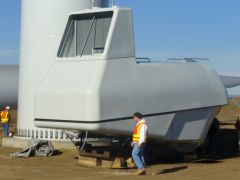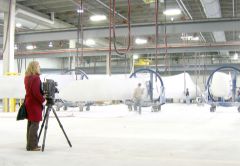Recycling Plant Success? Developing Countries with Sustainable Goals
The United States discards a huge amount of waste material every minute, and developing countries aren’t far behind. Some brilliant minds have been able to see piles of refuse as potential income and useful materials, from companies like Lakeshore Recycling to home decorators reusing old fabrics. People everywhere are willing to come up with ways to turn trash into treasure. Recycling is sustainable and profitable, benefiting entrepreneurs around the world and the planet. These developing worlds have been able to use recycling to make their country more sustainable one garbage can at a time.
Mexico
In developing countries, waste recycling starts at street level. In fact, one percent of the urban populations in developing countries make their living picking up trash. Mexico City has a gigantic trash problem, about 12,000 tons of solid waste per day. One of the worst offenders in plastic bottles. Mexico was found to be the second largest consumer of polyethylene terephthalate bottles, and the city found providing nice blue recycling bins was not empowering the venture and has turned to other means to help get sustainable.
Rethinking incentives, the city set up a vast farmers' market named Mercado del Trueque; and true to citizen values, featured barter. Trash and recyclable waste were exchanged for 'green point' vouchers based on weight. More than 3,000 families showed up with bags of trash on opening day, exchanging it for vouchers to spend on fresh vegetables at the farmers' market. It’s a unique idea to get more citizens involved in recycling and appealing to what would work in their lives.
Philippines
In the Philippines, events started out a bit less controlled than Mexico City's project, but soon gained speed.
Payatas is one of the most impoverished parts of Manilla, with almost 40 percent of residents unemployed. Rotting waste reeked about the disposal facility, and people dug out nuggets of junk to sell at scavenger shops. Food waste was unearthed and sold to pig farms.
Today the disposal facility is operated by a private manager helping with the Payatas Alliance Recycling Exchange. The ugly landscape of waste material has been dozed over and seeded for a park. Bio vents line the mound, exuding gasses from decomposing waste, used to fire an electricity generator. This generator powers electricity to light the streets of Payatas and a workshop for citizens. Three thousand former scavengers are now employed at the waste recycling facility, integrating the formerly unemployed and junk shop owners into a productive work force moving waste, and improving living conditions at the same time.
Egypt
Electronic waste is a huge dilemma in most countries, as everyone wants to purchase the latest technology and don’t know how to dispose of old models. In Egypt, it is discarded everywhere. Electronic waste, or E-waste as it’s been termed, presents hazards to those collecting it. The people of Zabaleen district in Cairo obtained an E-waste learning center through CID consulting in 2009. CID consulting is one of Egypt's leading entities in E-waste management. The purpose of the learning center is to offer young people a chance to earn money while learning about plastic and electronic waste recycling. The growing waste in electronics has become a booming business and helped to employ many people in Egypt.
Recycling is a fascinating field for the inventive and the entrepreneur, a treasure trove of unique future possibilities for workers, factories, and even whole countries. With new technologies and green initiatives being pushed all the time, recycling even in third world countries has become possible and sustainable.





0 Comments
Recommended Comments
There are no comments to display.